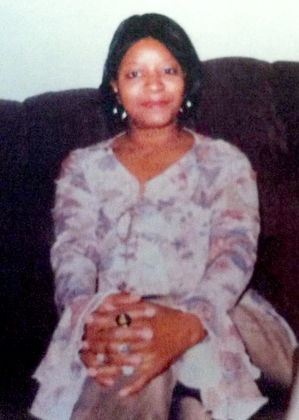Cancer Center of Southeast Texas ready to handle local needs
Published 12:36 am Saturday, April 16, 2022





|
Getting your Trinity Audio player ready...
|
For decades, Baptists Hospital’s cancer treatment center has been serving the needs of Southeast Texas in Port Arthur.
The facility is part of the Baptist Regional Cancer Network and located at 8333 9th Ave.
“We do chemotherapy, immunotherapy and radiation,” Dr. Chisa Echendu said.
Trending
“We also see patients who have non-cancer diagnosis. We see patients who have hematologic diseases like sickle cell disease and anemia and things like that.”
Echendu said the facility has six doctors on staff.
“We have three radiation oncologists and three medical oncologists,” she said. “We rotate back and forth between our clinic here and in our clinic in Beaumont. We have one medical oncologist and one hematologist who is always here and doesn’t rotate.”
While the group rotates, Echendu said there is always someone with each specialty at the facility.
“On the radiation side, we see roughly 20 patients a day at this particular clinic,” she said. “We also have a suspicion on cancer clinic. These are people who are either referred to us from their primary doctor or they are worried that they have some kind of cancer. They have abnormal weight loss or feel a bump that they did not previously feel.
“They might have had an abnormal lab or imaging. Sometimes they come from the emergency room after some testing. They come here and we do all of the work up to see if it is cancer or not.”
Trending
Echendu said a referral is the most common way people come into the facility.
“We see basically every kind of cancer,” she said. “We are generalists in terms of what kind of cancer we treat. We don’t only treat breasts or lungs. We are trained to treat, basically, everything.”
There are a few exceptions to when doctors would recommend patients seek more specialized help.
“In radiation oncology, something like pediatrics is usually something that is very specialized,” Echendu said. “Otherwise, most radiation oncologists are able to treat everything, and that is how we are all trained.”
A cancer diagnosis is something nobody wants to hear, but the doctors at the Cancer Center of Southeast Texas walk patients through what can be a scary process.
“Sometimes it is harder on the family than the patients,” Echendu said. “Generally, our group is really good. We just want to show empathy and make sure patients and their families feel comfortable with our abilities as physicians and the care we are going to provide. We do our due diligence.
“It is our professional responsibility to stay on top of things in terms of new innovation and research. I think that comes through when we talk to patients.”
Echendu said the team also makes sure patients know they are seen and heard.
“We have resources available to help them,” she said. “It is not just medicine. We have things that make the journey easier. Sometimes it requires social work and intervention. It is clinic navigation and patient navigation. We have assistance with transportation. It is not always just the medicine as much as it is the support. We have a really good group.”
Echendu said innovations and discoveries happen every day in the world of cancer research, but she is interested in screening advances.
“In the past, we had set guidelines on how we screen patients,” she said. “Those guidelines don’t always follow. In the past 5-10 years, we are getting more patients diagnosed with rectal cancer. People in their 30s and 40s, which is way before screening age, which traditionally has been 50, are getting it.
“Finally, the American Cancer Society and other governing bodies for cancer care have decreased the age to 45. That will help people catch it sooner before it becomes more problematic.”
With an array of treatment options at the Port Arthur location, Echendu said the team is equipped to handle the area’s needs.
“The temptation is always there to go for the big, bright lights and things like that,” she said. “I don’t think anyone would drive to Louisiana or Houston to go to CVS or buy Tylenol. If you are not going to do that, why put yourself in the pressures and rigors of travel and expense? Patients have side effects from treatment and you are driving two hours while you are sick. Ultimately, I want people to know care can be done locally.”










